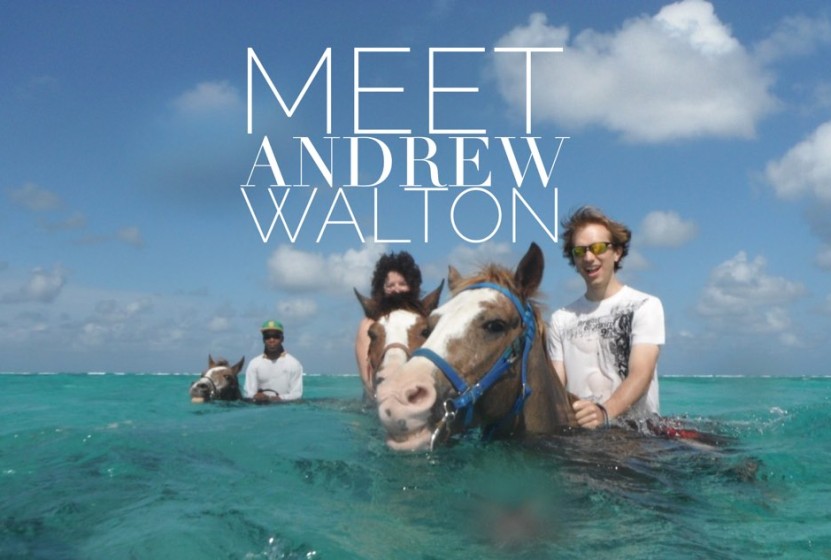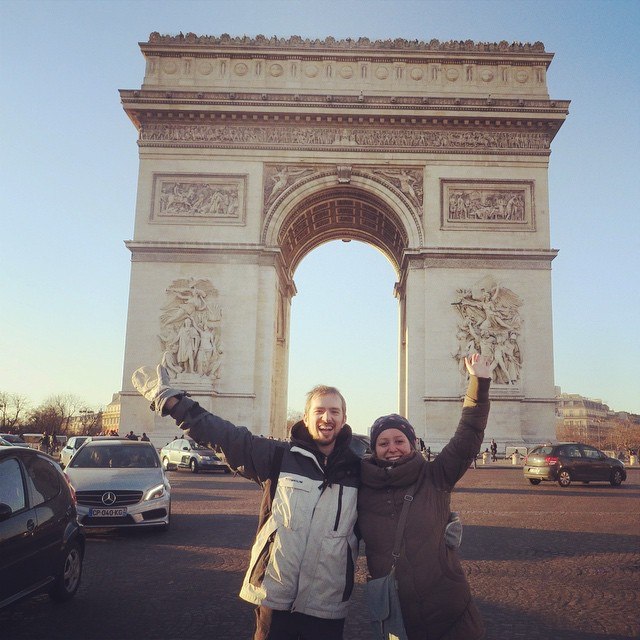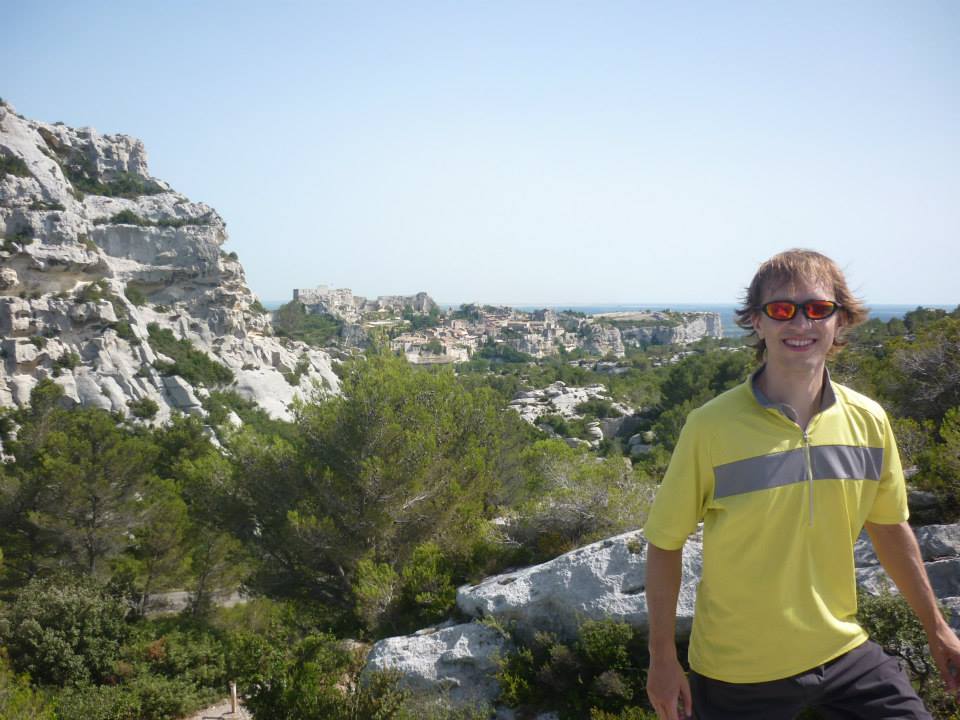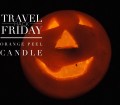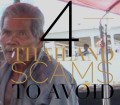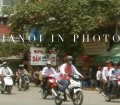A true traveling virtuoso, Andrew Walton of Escape Velocity is a scholar of long-term travel. A prolific writer, adventurer, a polyglot and expert chess player (seriously. Top 10% in the world!), Andrew is our generation’s most interesting man in the world! Overcoming his own adversity to build life his way, Andrew shows us that a challenge is just a necessary precursor to triumph. Through his remarkably succinct guides and actionable strategies, a life on the road is realistic for just about anybody. So, if living a life of travel is your goal, I highly recommend you get to know him and his blog.
Tell us a little about Andrew Walton. Who are you, what are you all about, you’re first introduction to traveling, and how long you’ve been blazing your adventure?
I make traveler happen. That is: I show people how to design a travel lifestyle. I cover all the nitty-gritty “how to” stuff that every traveler has to tackle whether they want to relax on the beach in Bali or explore the fjords of Norway. And while you’ll find some destination guides to some exotic locations, my main focus has always been about getting more people on the road to blaze their adventure.
I’ve almost always traveled thanks to the summer road trips my family would take when I was a child. I’d also lived in another city for a while, spent 3 months in Europe, and had my fair share of adventures within Canada, but it was 2 years ago that I started full time international travel.
Traveling as a lifestyle is an aspiration for many. What inspired you to buck the trend of a “normal” life, and become a long-term traveler?
I did it out of perceived necessity actually. I had suffered from some major health complications that saw me not speak for 2-2.5 years and basically unable to use my arms. In fact, I’m still only able to type these words using a strange workaround I came up with.
Anyway, I was almost out of money, having not made an income for such a long time. Even if I could have physically finished my university degree, I couldn’t have afforded it.
So, seeing the end was near (of my cash I mean), I did the only thing that made sense to me at the time: Move somewhere cheaper!
It wasn’t only desperation though. It was also opportunity. As a 20-something who had already lost several years to injury and dropped out of university, I wasn’t going to make a big splash with a conventional career path. I decided my best option was to blaze my own trail and build the life I wanted the only way possible – my way.
For most, money is the biggest hurdle to traveling long-term. How do you afford staying on the road as long as you have?
Well first of all, staying on the road means making money on the road.
Therefore, I think there’s one critical mind shift we need to make.Most of us have a preconceived notion that travel should have certain levels of comfort, luxury, freedom from responsibility and so on. Luxury vacations may be like this. Long term travel isn’t.
Long term travel is actually more like a typical career path. You don’t start as the CEO. You work your way up, taking some bumps along the way but also learning the necessary skills to one day become CEO, or a top manager, or a leading expert in your field.
So the simple truth is that if you haven’t inherited a fortune or have a remote job that can fund your dream trip, you’re going to go through some growing pains.
This should be either surprising or worrying, as it’s exactly the same as learning literally any skill on earth. If you don’t want to learn anatomy, you probably should seek a career in medicine.
If you don’t want to learn how to make money on the road (and are okay with that fact that it’s a process), don’t become a long-term traveler.
You offer an amazing guidebook titled “101 ways to earn money while on traveling”, would you be able give us a peek of one piece of actionable advice, and where can we get the full guide?
The big problem most people face is they feel like they have no ideas. Heck, you could read the entire list of 101 ideas in my guide and feel like you can’t do any of them.
That’s rather unlikely.
The real block is psychological. We ask ourselves “what can I do” and question our own worthiness rather than asking “what does that person need?”
So my best technique is to do exactly this. Start asking the people you know 2 things:
- What they’re currently working on (work projects, hobbies, personal goals…)
- What their biggest challenge with this thing is.
Literally every person has an answer to this. So by doing this you’ll start to see what is needed. Sometimes you’ll even see how you can help. This bypasses the whole “I can’t do that” objection.
Think of it this way: When a friend comes to you for advice or help, you are probably thrilled to give it. You don’t question whether you’re the best candidate for the task – you just help.
The other, juicy tactical stuff like where to actually look for work is covered in the guide, which you can read here.
What are three steadfast rules that you abide by in order to stay on budget while traveling?
- Travel slowly: You’ll experience more and spend less. It’s a no-brainer!
- Focus on Big Wins, Ignore Minutiae: Not buying a drink when you go to a restaurant isn’t going to save your budget if your travel style requires eating out 3x a day. Likewise, using any one of 19 insanely affordable forms of accommodation has way more impact than minutiae like skipping a bus ride, not buying souvenirs to send to friends, or taking out 2x as much cash to cut down on ATM fees. Intercity or international transportation is often another big win – do it less or do it cheaper to reap the rewards.
- Consciously focus on career growth on the road: There’s a limit to how much a person can cut back – both literally as well as from a practical standpoint. Therefore to stay on budget and allow ourselves more freedom, we should also be focused on increasing our income on the road. Concretely, I make sure that every day I do at least one thing that will contribute to my future, whether that’s connecting with important people on LinkedIn, doing an interview, or emailing new prospects.
Lets talk Languages! As a self-professed lover of learning different languages, what advice can you give for travelers who wish to immerse themselves and quickly learn new vocabulary?
I’d suggest a very straightforward, 2-pronged approach:
- To start speaking, you want to learn complete phrases, not isolated words. You have no hope of recalling a bunch of isolated words to form sentences on the fly, especially when just starting out. My best suggestion: Create a small introduction or biography of yourself – all the things you would likely tell someone you meet for the first time. Where you’re from, where you work, what you enjoy in your free time, why you’re here etc.
Do this in your native tongue first, and then translate it into your target language.
You can find a native speaker on a site like http://livemocha.com/ or Google “language exchange” to correct your bio and help you with pronunciation.
This is by far the most effective thing you can do at the start because you’ll use it in basically every single conversation you ever have, and it immediately gets you using the language.
Do this, and it will become painfully obvious what other phrases you need when you start getting practical experience. You’ll end up thinking “Damn, I really need to know how to say that.” Write this phrase down somewhere so you can look it up later.
Second, you need to be able to understand what people say in response. For this you need to know a ton of words, because every person has their own go-to vocabulary.
To learn massive amounts of words, I like to create paper flashcards organized by theme for this (transportation, food, body parts etc). Because unlike electronic flash cards, this gives me unlimited customization options for exercises.
But for those who don’t want to carry around a bunch of paper, Anki SRS is an excellent program, as is the website Memrise.com.
Both these programs use a concept called spaced repetition, which basically mean repeating a word and refreshing your memory just before you forget. It’s extremely effective.
The only thing I’d add is: try to add as much relevance as you can to each word you learn. Put them into sentences and really imagine the scene in which you use the word. Our minds aren’t designed to remember random groups of letters, but they’re excellent at recognizing images.
Maybe I’ve hinted at this: but try to make your language learning as relevant and fun as possible. As much as you may want to wax poetic on high-energy astrophysics, mastering your personal bio will be far more rewarding at the outset!
If you could offer only one safety/survival tip, what would it be?
Have good health insurance.
The most common physical danger for travelers is traffic accidents – just as if you were staying at home.
In fact, if you’re not going into a known war zone or an area where tourists are specifically targeted, the biggest dangers you face are typically the same as in your hometown.
That’s not to say all countries (and regions within a country) are equally safe – they’re not, but look at it this way:
Would you flash your fancy camera and wads of cash in a questionable neighborhood in your hometown?
Would you get rip-roaringly drunk in an unfamiliar part of town without any plans to get home?
Would you hang out in random back alleys with poor lighting and little/no foot traffic?
If so, you’re increasing the risks you take – and it has nothing to do with the fact that you’re traveling.
If you avoid judgmental blunders, about the only thing you should need is good health insurance in case something does go wrong, especially if you’re in a region where medical standards aren’t the same as in developed nations.
How have you evolved as a traveler from when you first started to how you are now?
I’d compare my growth as a traveler to conventional career growth.
That is, starting at the bottom of the corporate ladder and working your way up.
At the beginning of my travel career I was an extreme budget traveler. I had almost no money and no income. Needless to say I had to stretch every dollar as far as possible.
Sometimes my budget would be as low a $2 a day – and that happened in Paris, not southeast Asia.
Now a lot of people see this and think “that’s horrible, I would never do that!”
And yet we see a ton of people go through grueling internships to become doctors or lawyers or accountants and don’t blink an eye.
I didn’t do extreme budget travel because I wanted to be an extreme budget traveler, any more than an aspiring lawyer shuffling papers for several years with horribly long hours and pitiful compensation is doing it because this is the work they want to do for the next 40 years.
I did it because it’s a stepping stone to higher quality travel. It’s just that I started with travel where most people start by thinking “I need more money!”
Today, I’ve gotten to the point in my location-independent career where I can afford to think about maximizing experience instead of pinching pennies.
So the big difference between then is now is that I’ve gone from “What do I need to do to survive today?” all the way to “what do I want to create today?” and “how can I give back?”
What is the one essential piece of travel gear you must have on your adventurers?
A water bottle! Not having water when you need some can range from a minor nuisance to downright dangerous.
What kind of trouble are you getting yourself into at the moment, and where will the road take you next?
Right now I’m working on my Russian in Saint Petersburg, and my next adventure is actually having my parents coming to see me here in Russia for a month. We haven’t seen each other in 2 years, so it’s been fairly difficult to plan beyond that to be honest.
Do you have any final advice for those who wish to live a life of travel?
When all else is said and done, your ability to live a life of travel will come down to your ability to build a career on the road.
All the other info we might find: Looking for cheap accommodation, getting through the airport quicker, what to see/do/eat in a destination – all that’s a distraction if we haven’t got a handle on funding the thing.
And I use the word career intentionally. Starting out it’s fine to do whatever it takes: bar tending, working in a hostel, teaching English, or anything else. But in order to maximize our experience we need to have some sort of growth over time.
All that being said, the best way of doing this is getting out there and doing it. Save up enough to travel for 6 months and go. You are 100x more likely to find ways to fund your travel dreams when you’re on the road than by being a bedroom philosopher.
Fortune always favors those who do. If you want to live a life of travel, the fastest way is to start traveling.
About Escape Velocity
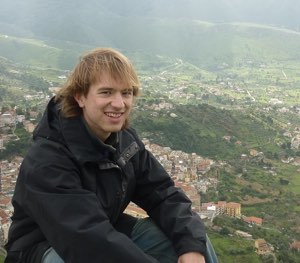 Hi, I’m Andrew. Traveling, learning languages, and entrepreneurship are my passions. Join me on my adventure around the globe and get my best tips, tricks, and techniques that you can use on your own journey.
Hi, I’m Andrew. Traveling, learning languages, and entrepreneurship are my passions. Join me on my adventure around the globe and get my best tips, tricks, and techniques that you can use on your own journey.
I’ve been traveling the world since 2013, and there’s no sign of slowing down. For me, travel isn’t all about monuments and museums. It’s not about resorts or luxury. For me, it’s the ultimate adventure!
So while I truly enjoyed the surf & sun of Hawai’i, Grand Cayman, and Thailand – you’re just as likely to find me in Russia, Finland – and someday soon a bunch of countries ending in “-stan.”
I consider this a necessary step to understanding both the world I live in and myself
Website: http://ajwalton.com
Facebook: https://www.facebook.com/ajwaltontravel
Twitter: https://twitter.com/ajwaltontravel
Pinterest: https://www.pinterest.com/ajwalton12
Carey
Latest posts by Carey (see all)
- Travel Hack Friday: #DIY Orange Peel Oil Candle #travelhacks - October 16, 2015
- Hanoi Vietnam, The Photoscape! #Hanoi #Vietnam #Southeastasia - October 5, 2015
- Travel Hack Friday: How to Find Edible Bugs - October 2, 2015

